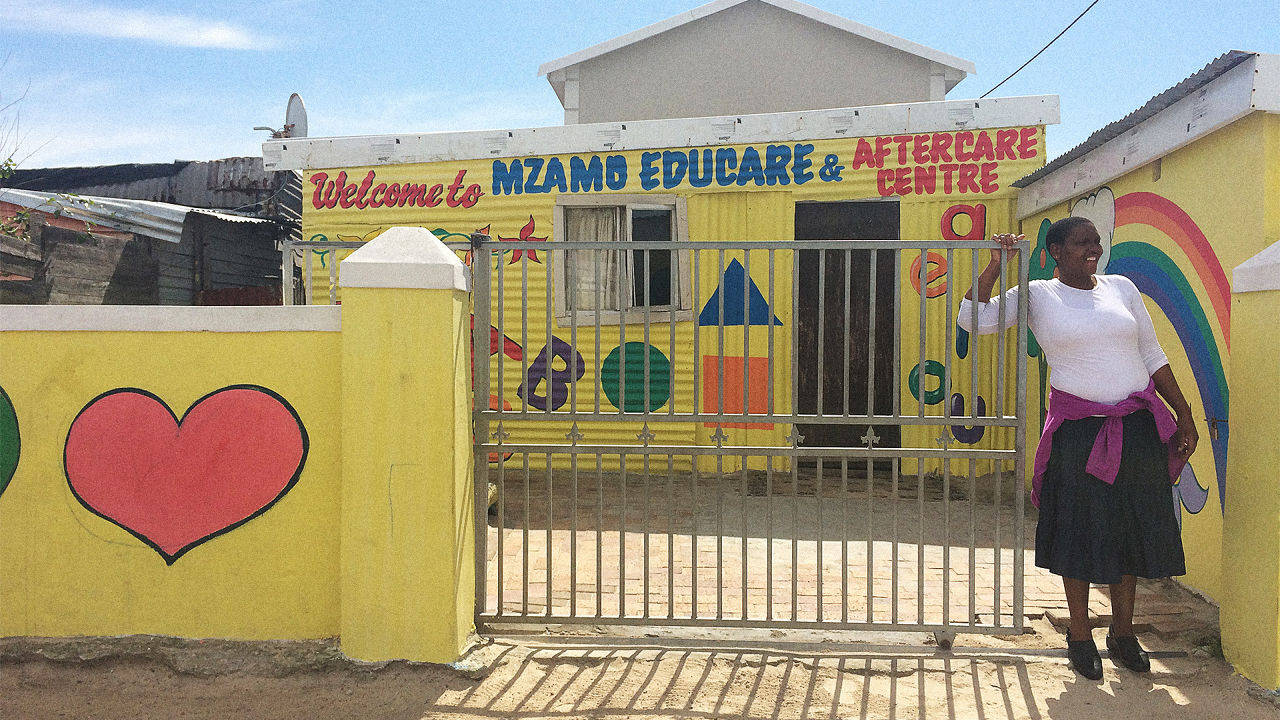
People who live a long way from grocery stores pay more for food because they have to travel there and back, which costs money, and they waste more time doing it. That's why two social entrepreneurs from Cape Town, South Africa, have come up with Lakheni, a group buying club that aggregates orders, with local daycare centers serving as a base.
"At the bottom of the pyramid, distribution is very inefficient because of the small amounts that individuals buy," says cofounder Nokwethu Khojane. "But there's value when you start aggregating that demand, because the numbers are there—they're just fragmented."
They think they can save money for low-income people who normally have to travel miles, while helping the centers generate additional income.
Each month, the parents make orders of staples like maize, sugar, and oil. Lakheni puts the orders together and goes direct to food suppliers. The suppliers then deliver the items to local mini-stores known as spazas. Khojane says customers can save about 30%, including their cost of transport.
At the moment, Lakheni works with 10 daycare centers, and customers make orders using pencil and paper, and pay by depositing money into a collective bank account. But, as the enterprise grows, Khojane and her partner Lauren Drake plan to develop a mobile app to take orders and handle payments. Khojane says paper is fine for now. But the app will avoid someone having to physically collect the orders and for customers to visit the bank every month. It will also make ordering mistakes less likely.

In effect, the startup is bypassing big box retailers and creating an incentive for suppliers to do the transport that customers normally do themselves. The suppliers now deliver to Cape Town's slums (townships) because the volumes make it worth their while.
"The retail space is highly competitive. Everyone said there was no money to make here. But we realized if we rearranged the system, there's still some value to be had," Khojane says.

No comments:
Post a Comment